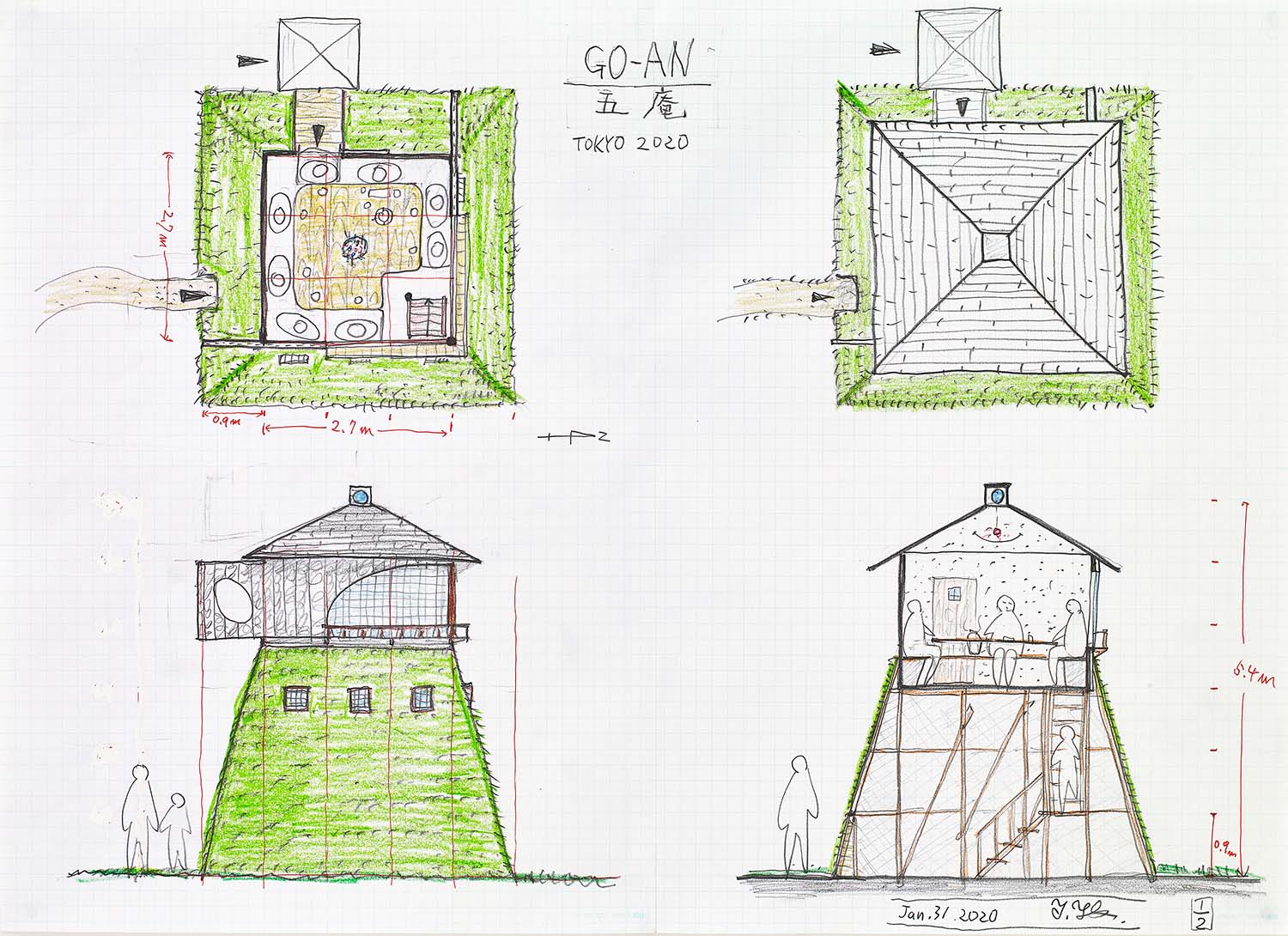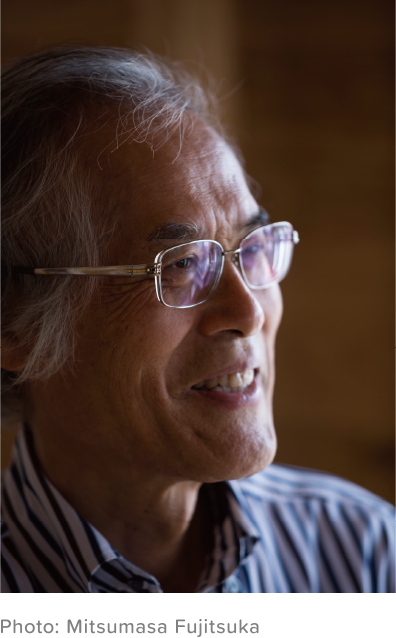Terunobu Fujimori Tea House “Go-an”




Tea House “Go-an” designed by Terunobu Fujimori


ABOUT
After entering the waiting room on the ground floor and taking the ladder to the tea room upstairs, you can view the new Japan National Stadium out of the large window.
Fujimori, not only is Japan’s leading architectural historian, but a maverick figure who made his late debut as an architect at the age of 45. His representative works include “Kusayane (Grass roof)” and “Douyane (Copper roof)” in La Collina Omi-Hachiman, and “Mosaic Tile Museum Tajimi”. The Tea House “Go-an” which stands just opposite of the Japan National Stadium is the latest of many of the tea houses that he has created.
HOW TO VISIT
Venue: In front of Victor Studio
2-21-1, Jingumae, Shibuya-ku, Tokyo
Opening Hours: 11:00-19:00 (12:00-19:00 on Saturdays)
Note: Advance reservation is required to enter “Go-an.” For more details, please check here.
Note: There is no dedicated parking lot. Please refrain from coming to the venues by car as parking is limited in the neighborhood.

CREATOR
Terunobu Fujimori
Born in 1946. He got his phD from the University of Tokyo. Now he is a director of Edo Tokyo Museum, a professor emeritus of the University of Tokyo, and a professor of Kogakuin University. After a long career as a researcher of modern architectural history and urban history, he debuted as an architect with Jinchokan Moriya Historical Museum in 1991, when he was 45 years old. He creates architectures in which nature and artifacts integrate. "Team Jomon Architeture," consisted of amateurs, sometimes helps to construct his work. His representative works are Tanpopo House (Dandelion House), Nira House (Leek House), Takasugi-an Tea House, and more. Recently he completed Mosaictile-Museum Tajimi and Kusayane and Douyane in La Collina Omi-Hachiman.



